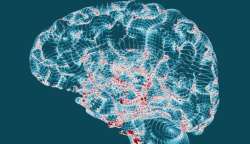AI could be a boon for Alzheimer's patients
Artificial Intelligence (AI) can prove to be essential for healthcare providers to detect and manage Alzheimer's disease or a related form of dementia.

Artificial Intelligence (AI) can prove to be essential for healthcare providers to detect and manage Alzheimer's disease or a related form of dementia, from which 44 million people suffer worldwide. In the study published in the Journal of Alzheimer's Disease, the team introduced supervised Machine Learning (ML) as a modern approach and new value-added complementary tool in cognitive brain health assessment and related patient care and management. With the increasingly favourable instrument "MemTrax" -- an online memory test using image recognition -- the clinical efficacy of this new approach as a memory function screening tool has been sufficiently demonstrated.
For the study, a team of researchers including from the Florida Atlantic University, SIVOTEC Analytics and Stanford University employed a novel application of supervised ML and predictive modeling to demonstrate and validate the cross-sectional utility of "MemTrax" as a clinical decision support screening tool for assessing cognitive impairment. The findings demonstrated the potential valid clinical utility of "MemTrax", administered as part of the online test in screening for variations in cognitive brain health.
"Findings from our study provide an important step in advancing the approach for clinically managing a very complex condition like Alzheimer's disease," said lead author Michael F. Bergeron, Senior Vice President, SIVOTEC Analytics.
"By analysing a wide array of attributes across multiple domains of the human system and functional behaviours of brain health, informed and strategically directed advanced data mining, supervised Machine Learning, and robust analytics can be integral for healthcare providers to detect and anticipate further progression in this disease and myriad other aspects of cognitive impairment," he explained.